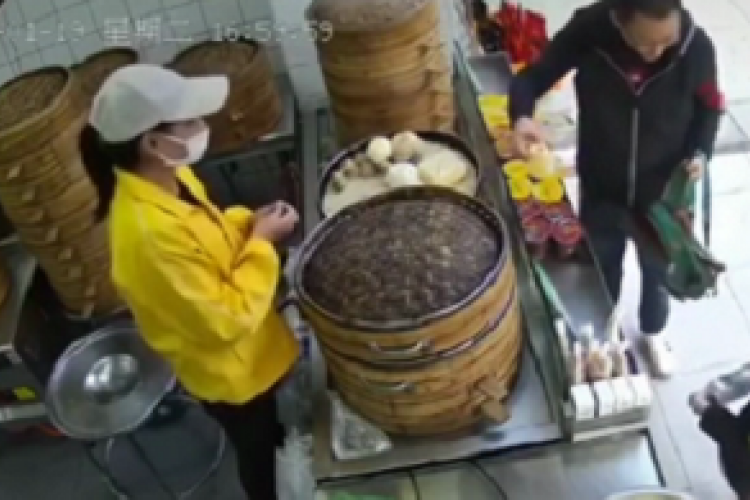Trending in Beijing: The Return of Fan Bingbing, a Beijing Kidnapping Case, and “Socialism is Cool”
A wrap-up of the top stories and hashtags Beijing netizens and local media have been posting on Chinese social media this week, exclusively for the Beijinger by What’s on Weibo editor-in-chief Manya Koetse.
1. Fan Bingbing is Back: She Got a Massive Fine, and She’s Sorry
Others in the film industry are given three months to pay overdue taxes

If you have not heard about ‘the return of Fan Bingbing,’ you might have been living under a rock for the past days. It was by far the biggest topic on Chinese social media this week, and yet, noteworthy enough, was not allowed to appear in Weibo’s hot topic lists.
Fan Bingbing has been a major topic of discussion over the past few months. The famous actress was last seen in public on Jul 1 of this year, right around the time when an alleged tax evasion scandal came to light via social media. At the time, Chinese TV host Cui Yongyuan revealed that the actress had been working with so-called ‘yin-yang contracts’ – an illegal practice to avoid paying taxes – for her work in the film Cell Phone 2. What followed was a long period of silence from Fan’s side, with rumors flying around on the whereabouts and fate of the highly-popular actress.
Last Wednesday, Oct 3, the actress finally returned to her Weibo account, that is followed by more than 62 million fans. Her social media comeback came just hours after Chinese state media news reported that Fan Bingbing has been ordered to pay taxes and fines worth hundreds of millions of yuan over tax evasion. In a lengthy post (full translation here), Fan apologized to her fans, friends, family, and the tax authorities for her deeds, writing: “Without the good policies of the Party and the state, without the love and protection of the people, there would be no Fan Bingbing.”
The fact that comments on Fan’s post were heavily controlled, that the topic was held outside the trending lists, and that Fan’s return was timed in the middle of the National Holiday, were all indications to many that the entire thing was an orchestrated campaign, using Fan Bingbing to ‘kill the chicken to scare the monkeys’ (杀鸡儆猴 shājījìnghóu: making an example out of someone in order to threaten others).
That idea was further strengthened when state media portrayed the case as a warning to others, suggesting the outcome of Fan’s case would promote the “healthy development” of the film and TV sector. An article issued by Xinhua noted that others in the industry would get the opportunity to correct any tax payments before Dec 31 without facing any penalties.
2. Beijing Fengtai “Kidnapping” Case
Outrage over police mishandling of attempted child abduction case

A local Beijing incident made nationwide headlines this week when a father took his grievances to social media after four women allegedly attempted to kidnap his son in a mall in Beijing’s Fengtai District in the morning of Oct 2.
The incident happened at the Dahongmen Yintai shopping mall, where the women attempted to abduct the 11-month-old child by dragging it from its stroller. Although the little boy’s abduction was prevented by bystanders responding to the mother’s cries, the parents were very shaken upon finding that the local police refused to register the case. They later only gave the women a five-day detention. The news led to much consternation online.
On Friday, the official Weibo account of the Beijing public security office (@平安北京) responded to the controversy by saying they will reinvestigate the matter, adding: “Children are the future of China, and we take any case involving minors very seriously.”
But the response did not tame the anger online, with popular comments saying: “If they did not vent their anger on Weibo, would you still take this case so seriously?”
Child abduction cases often go trending on Chinese social media. In late August of this year, the case of a five-year-old girl from Yunnan who was abducted on a playground in broad daylight also made headlines. Through the help of social media, the child was found back that same night dressed in other clothing, with her hair shaved off.
There are no reliable figures for how many children exactly go missing in China annually, but academic estimates go from 20,000 up to 200,000 cases per year.
3. “Socialism is a Bit Cool”: TV Quiz Propagates Xi’s New Era
Traditional propaganda in entertainment form

Over the past week, various international media, including the New York Times, reported about a TV quiz that was aired every night during the National holiday at prime-time on Hunan TV this week. So what is the fuss about?
In Studying Xi in the New Era (新时代学习大会 xīn shídài xuéxí dàhuì: the ‘Xi’ in 学习 xuéxí “studying” being a wordplay on Xi Jinping), contestants have to answer various questions relating to Xi’s life, political theories, philosophies, and other issues relating to Socialism in China’s “New Era.” The 40-minute show was aired from Oct 1 to Oct 5 and is a collaborate initiative by the Hunan Communist Party, People’s Daily, and Hunan Educational TV.
Although TV shows fully dedicated to Party propaganda are nothing new, this TV quiz attracted attention due to its focus on Chinese high-tech; using a robot presenter, space projections, and 3D effects to give the show a futuristic feel.
The concept corresponds to the new type of state propaganda that has been used over the past years to appeal to China’s younger, tech-savvy audiences. In 2017, flash cartoons, hip-hop songs, and even mobile games were used to propagate Party messages on social media.
Even though it was aired on the highly popular Hunan TV channel, “Studying Xi in the New Era” did not become a major hit on social media this week, with some calling it “dead entertainment,” and others simply labeling it as “ridiculous.”
The winning contestant of the show also does not receive a prize, as they would in more traditional TV quizzes. The ultimate prize, obviously, is being acknowledged for being a ‘true expert’ in Xi Jinping Thought and Socialism with Chinese Characteristics for a New Era.
If you are interested to watch, Mango TV lists all episodes here.
By Manya Koetse @manyapan
What’s on Weibo editor-in-chief
Manya Koetse is the editor-in-chief of www.whatsonweibo.com. She is a writer and consultant (Sinologist, MPhil) on social trends in China, with a focus on social media and digital developments, popular culture, and gender issues.
Images: sohu.com, Weibo







